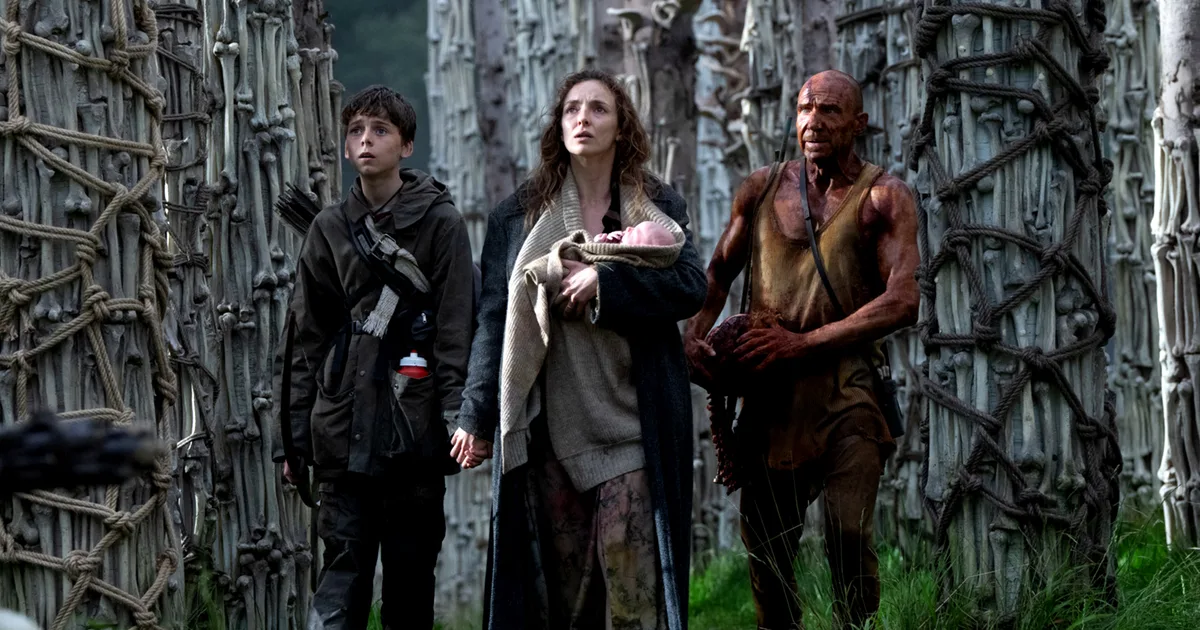28 Years Later Movie Review: The horror fades as Danny Boyle's film slips into melodrama
Story: A group of survivors live safely on a small island, away from the infected. But when a father and son travel to the mainland, they discover surprising secrets about other people who have survived.Review: Comparisons with ‘28 Days Later’ and ‘28 Weeks Later’ are inevitable, and to get straight to the point—'28 Years Later’ is a technically polished and often striking film, but it lacks the relentless energy and emotional depth of its predecessors.
Danny Boyle
returns to the director’s chair with a fresh take, blending folk horror with the remnants of a zombie apocalypse, but the story struggles to hold together as it progresses.
The premise—an island boy seeking treatment for his sick mother—works well in the beginning, offering a compelling emotional hook. However, the film gradually shifts away from the menace of the Rage virus and veers into melodrama, ultimately dulling its impact.The story unfolds in the secluded beauty of the Scottish Highlands, where Jamie (Aaron Taylor-Johnson), his wife Isla (
Jodie Comer
), and their son Spike (Alfie Williams) live in relative peace on an isolated island community, untouched by the virus.
Isla is gravely ill, and Jamie decides to take Spike to the mainland—a journey that feels like a rite of passage to manhood. Their trip begins with suspenseful momentum: lush green jungles teeming with the infected, the silent dread, and a deadly run-in with Alphas. Boyle excels in these sequences, building tension through atmosphere rather than cheap thrills.
But once the duo returns to the island and Spike later decides to go back with his mother to seek a “doctor” rumoured to cure the sick, the film begins to lose steam.The second half introduces several subplots and new characters, including the eccentric Dr. Kelson (
Ralph Fiennes
), who lives in isolation and conducts strange rituals that feel straight out of ‘Apocalypse Now.’ While visually arresting, these moments don’t connect meaningfully to the central narrative. In contrast to the tightly wound tension of the earlier films, the military presence here feels weak and underwritten. In previous entries, soldiers were key drivers of both horror and plot progression; here, their token presence creates a vacuum the script struggles to fill.
The shift from survival horror to personal drama may be intentional, but it doesn’t fully pay off.Performance-wise, the film finds solid footing. Aaron Taylor-Johnson plays Jamie with a mix of control and buried desperation—a man trying to prepare his son for a world he doesn’t fully understand. His affection for Spike is believable, though his emotional distance from Isla and involvement with another islander feels glossed over.
Jodie Comer, however, brings raw vulnerability to Isla, especially in a striking sequence involving the delivery of a baby by an infected mother.
But it's Alfie Williams as Spike who emerges as the film’s true heart. His performance is quietly powerful, capturing the innocence, curiosity, and courage of a boy on the cusp of transformation.There’s no denying that Boyle still knows how to craft a compelling visual experience. The film’s early scenes are steeped in dread and quiet beauty, the sense of isolation almost poetic. But strong visuals can only carry a film so far. ‘28 Years Later’ starts strong, builds intrigue, and promises something deeper—but ultimately can’t sustain its momentum. Alex Garland’s screenplay has flashes of brilliance, especially in how it explores generational trauma and protection, but the horror elements are inconsistent and the narrative becomes scattered.
This isn't a bad film by any means, but it doesn’t live up to the promise of its lineage. What could’ve been a thrilling evolution ends up feeling more like an echo.










